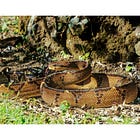Plagiarize, vb. trans. [1. plaj(i)ariz ; 2. pleidz-]. To adopt and reproduce as one’s own, to appropriate to one’s own use, and incorporate in one’s own work, without acknowledgement, the ideas of others, passages from their writings &c.1
A citation is the bare minimum expected standard of copied, re-interpreted or paraphrased works and ideas of others.
Citation’s acknowledge the works of others’, differentiate other authors' ideas and importantly, direct the reader to additional sources of information - lending weight to the work, making it far more valuable.2
In academia, plagiarists are typically failed, suspended, or expelled.
Plagiarism a Violation of Professional Ethics
Plagiarism undermines the integrity of any profession, and usually leads to eventual loss of credibility, reputation, respect and trust of the perpetrator.
Academic integrity is defined as acting in accordance with the ethical and professional principles and values of honesty, trust, fairness, respect, responsibility and courage, within research and in teaching-learning.3
An Australian homeopath has been reporting for some time now the plagiarization of their work by others (more than one!), for profit.
In Australia, any works created by a ‘qualified person’ become automatically protected under the federal Copyright Act 1968 (Commonwealth). Plagiarism (under the Act) can lead to criminal prosecution with up to 5 -years in prison and/or a $600,000 fine. Criminal breach of copyright prosecutions are reserved for major offenders, including when on a ‘commercial’ scale for profit.4
Predatory publishing phenomenon
Academic research is said to have been destroyed by plagiarism in conjunction with predatory academic journals which are defined as a low quality, money-making agenda, with concocted peer-review processes.5 Predatory journals lack plagiarism assessment tools; thus heavily plagiarized articles are accepted and published.6
Plagiarism has been referred to as ‘a rapidly multiplying disease consuming academia, an epidemic of copy-pasting risking the education community.’7
Studies show academic dishonesty relates to self-control, self-beliefs, and life satisfaction, with life and social comparison positively related to plagiarism and falsification.8 9
Machiavellianism is said to be a predictor of academic cheating and research misconduct101112 with its tendencies to less motivation for learning13 and known use of duplicitous tactics to achieve their goals without moral or social regard.1415
Machiavel(li), n. [1. makiavel(i) ; 2. maekievel(i)], fr Niccolo Machiavelli (d.1527), of Florence, author of ‘Il Principe’, which advocates the principle that any political means, no matter how unscrupulous, are justifiable, which strengthen the central government of a state. Crafty, subtle person, who sacrifices moral scruples to the attainment of power, or furtherance of his ends.
Machiavellian, adj. [1. makiavelian; 2. maekevelien]. Prec. & -ian. Following, based on the principles of, Machiavelli; subtle and unscrupulous in attaining ends.16
Maladaptive personality and psychological functioning has been linked to academic misbehaviour.17
Personality traits including excessive ambition, desire for success, insecurity, competitiveness, risk-taking, impulsivity, manipulative ability, insensitivity, irresponsibility and antisocial tendencies, have all been linked to academic and professional misconduct.18
Homeopaths must possess the skill of translating a person’s statements / symptomatology / salient features into rubrics (aka usable data) which is then collated (aka repertorization) and studied within materia medica to find the similimum (aka most similar homeopathic medicine).
Rubrics which may apply to the ever increasing issue of selling the idea’s of others as one’s own - often for profit - when a salient feature of an individual’s symptomatology can be found in The Essential Synthesis19
Mind: AVARICE
Mind: ENVY
Mind: ENVY; avidity, and
Mind: ENVY; qualities of others
(I have written on ENVY)
Mind: INSANITY; Megalomania
Mind: INSECURITY
Mind: KLEPTOMANIA
Mind: MISANTHROPY
Mind: MORAL FEELING; want of
Mind: UNFEELING
If you have more please post in comments below!
Shameless plug alert - if you are looking for ways to expand your repertorial ability, I have published the book One Hundred Practice Cases for Homeopaths especially for you
‘In contrast to frequent claims, the available Meta Analyses of homoeopathy in placebo-controlled randomised trials for any indication show significant positive effects beyond placebo.
Compared to other medical interventions, the quality of evidence for efficacy of homoeopathy was similar or higher than for 90% of interventions across medicine.
Accordingly, the efficacy evidence from placebo-controlled randomised trials provides no justification for regulatory or political actions against homoeopathy in health-care systems.’20
Thank you !
Wyld H, ed 1940. The Universal English Dictionary. London; Routledge & Sons, ltd.
Bahadoran Z, Mirmiran P, Kashfi K, Ghasemi A. The Principles of Biomedical Scientific Writing: Citation. Int J Endocrinol Metab. 2020 Apr 27;18(2):e102622. Available from: https://pubmed.ncbi.nlm.nih.gov/32636888/
Tauginienė L, Gaižauskaitė I, Razi S, et al. Enhancing the taxonomies relating to academic integrity and misconduct. J Acad Ethics. 2019;17(4):345–361. Available from: https://link.springer.com/article/10.1007/s10805-019-09342-4
Criminal Defence Lawyers Australia. Is plagiarism illegal in Australia? https://www.criminaldefencelawyers.com.au/blog/is-plagiarism-illegal-in-australia/
Callaghan CW, Nicholson DR. Predatory publishing and predatory journals: A critical review and proposed research agenda for higher education. Journal of Further and Higher Education. 2020;44(10):1433–1449. Available from: https://www.tandfonline.com/doi/abs/10.1080/0309877X.2019.1695762
Kumar V, Verma A, Aggarwal SP. Reviewing Academic Integrity: Assessing the Influence of Corrective Measures on Adverse Attitudes and Plagiaristic Behavior. J Acad Ethics. 2022 Dec 29:1-22. Available from: https://www.ncbi.nlm.nih.gov/pmc/articles/PMC9798953/
Toprak Z, Yücel V. A peculiar practice of academic writing: Epidemic writing in the Turkish graduate education. Cogent Education. 2020;7(1):1. Available from: https://www.tandfonline.com/doi/full/10.1080/2331186X.2020.1774098
Błachnio A. Don't cheat, be happy. Self-control, self-beliefs, and satisfaction with life in academic honesty: A cross-sectional study in Poland. Scand J Psychol. 2019 Jun;60(3):261-266. Available from: https://onlinelibrary.wiley.com/doi/10.1111/sjop.12534
Brown T, Bourke-Taylor H, Isbel S, Gustafsson L, McKinstry C, Logan A, Etherington J. Exploring similarities and differences among the self-reported academic integrity of Australian occupational therapy domestic and international students. Nurse Educ Today. 2018 Nov;70:13-19. Available from: https://pubmed.ncbi.nlm.nih.gov/30125866/
Veríssimo AC, Conrado GAM, Barbosa J, Gomes SF, Severo M, Oliveira P, Ribeiro L. Machiavellian Medical Students Report More Academic Misconduct: A Cocktail Fuelled by Psychological and Contextual Factors. Psychol Res Behav Manag. 2022 Aug 10;15:2097-2105. Available from: https://www.ncbi.nlm.nih.gov/pmc/articles/PMC9380600/
Tijdink JK, Bouter LM, Veldkamp CLS, Van De Ven PM, Wicherts JM, Smulders YM. Personality traits are associated with research misbehavior in Dutch scientists: a cross-sectional study. PLoS One. 2016;11(9):e0163251. Available from: https://www.ncbi.nlm.nih.gov/pmc/articles/PMC5042531/
Esteves GGL, Oliveira LS, de Andrade JM, Menezes MP. Dark triad predicts academic cheating. Pers Individ Dif. 2021;171:110513. Available from: https://www.sciencedirect.com/science/article/abs/pii/S0191886920307042
Rundle K, Curtis GJ, Clare J. Why students do not engage in contract cheating. Front Psychol. 2019;10:2229. Available from: https://www.ncbi.nlm.nih.gov/pmc/articles/PMC5042531/
Williams KM, Nathanson C, Paulhus DL. Identifying and profiling scholastic cheaters: their personality, cognitive ability, and motivation. J Exp Psychol Appl. 2010;16(3):293–307. Available from: https://pubmed.ncbi.nlm.nih.gov/20853988/
Barbaranelli C, Farnese ML, Tramontano C, et al. Machiavellian ways to academic cheating: a mediational and interactional model. Front Psychol. 2018;9:695. Available from: https://www.ncbi.nlm.nih.gov/pmc/articles/PMC5960691/
Wyld H, ed 1940. The Universal English Dictionary. London; Routledge & Sons, ltd.
Veríssimo AC, Conrado GAM, Barbosa J, Gomes SF, Severo M, Oliveira P, Ribeiro L. Machiavellian Medical Students Report More Academic Misconduct: A Cocktail Fuelled by Psychological and Contextual Factors. Psychol Res Behav Manag. 2022 Aug 10;15:2097-2105. Available from: https://www.ncbi.nlm.nih.gov/pmc/articles/PMC9380600/
Tijdink JK, Bouter LM, Veldkamp CLS, Van De Ven PM, Wicherts JM, Smulders YM. Personality traits are associated with research misbehavior in Dutch scientists: a cross-sectional study. PLoS One. 2016;11(9):e0163251. Available from: https://www.ncbi.nlm.nih.gov/pmc/articles/PMC5042531/
Schroyens, F. ed. 2007. The Essential Synthesis. Reprint 9.x. London, Homeopathic Book Publishers.
Hamre HJ, Glockmann A, von Ammon K, Riley DS, Kiene H. Efficacy of homoeopathic treatment: Systematic review of meta-analyses of randomised placebo-controlled homoeopathy trials for any indication. Systematic Rev. 2023 Oct 7;12(1):191. https://systematicreviewsjournal.biomedcentral.com/articles/10.1186/s13643-023-02313-2#Abs1








I see immediately that I missed the following rubrics:
Mind: AMBITION increased
Mind: AMBITION increased; competitive
Mind: AMBITION increased; competitive, means employed, every possible
At college our professor would cross reference our work to see if it was copied. My husband makes his living as an intellectual property lawyer, so stealing others work is common.